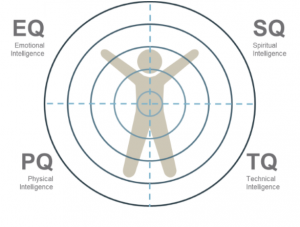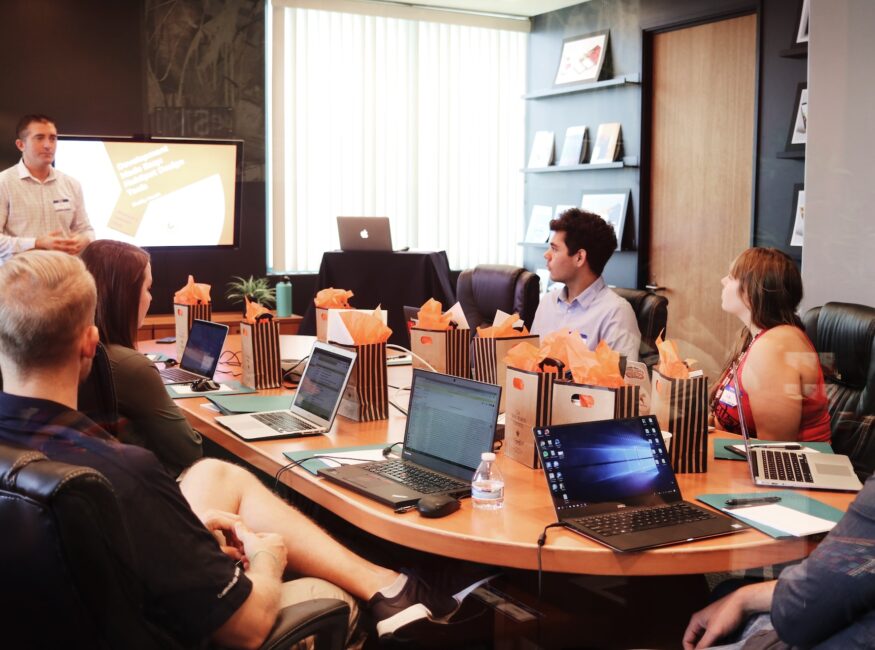Last week, Keogh was excited to host our very first webinar, during which we discussed resilience and how it is essential for all modern leaders. The webinar was hosted by Senior Consultant Yvette Henderson and ran in partnership with Aspen Coaching and Resilient Organisations. Thank you to those who attended the virtual session. If you missed it, you can view the full video here or read the recap below.
Our Speakers
Yvette Henderson – Keogh Consulting (Host)
Suzanne Brookes – Keogh Consulting (Co-star)
Emma Robson – Aspen Coaching (Co-star)
Dr Charlotte Brown – Resilient Organisations (Co-star)
Terence Yong – Keogh Consulting (Producer and Timekeeper)
If you couldn’t make the webinar, below is a short recap of what we covered.
Keogh Wisdom Wheel
Comprised of 4 quadrants:
EQ – Emotional Intelligence
Represents a person’s capacity to sustain and develop skills and abilities to enhance relationships with both self and others.
SQ – Spiritual Intelligence
Represents the individual’s skills and abilities to have and follow a clear vision and purpose
PQ – Physical Intelligence
Represents the knowledge, skills and abilities that are directly related to the sustenance and development of the human body, from nutrition to the capability to act.
TQ – Technical Intelligence
Represents professional knowledge and expertise
Defining Resilience
What is resilience?
“Resilience is when you are able to, when faced with emotional storms, bend without breaking and bounce back to weather the next storm, even better equipped than you were for the last” – Dr Barbara Fredrickson
It is turning adversity into opportunity. Resilience is honed from combining, compounding and practicing many learnable skills. It involves self awareness, mindfulness, self care, relationships and purpose.
What is not resilience?
Not about just absorbing the impact, being stoic, or carrying on.
Characteristics of a resilient leader
Someone who is empathetic of others and their situation, and can see the bigger picture among the chaos.
Characteristics of a resilient team
A resilient team is able to work together and support each other using their strengths.
EQ – Emotional Intelligence
We observe and choose how we act. The decision is up to us.
SQ – Spiritual Intelligence
Why is having a purpose important?
If you can define your purpose to yourself, and act in every area of your life with that purpose in mind, as a goal and as a reason …it can be the most empowering thing you’ll ever do.
How does having a sense of purpose help build resilience?
If we know what that is, it enables us, when we have setbacks or get sidetracked, to refocus and remind ourselves of our overall goal.
PQ – Physical Intelligence
Empowerment of people and their bodies – improving communication skills, problem solving skills, self-resilience, self-reliance.
Being able to adapt quickly and become stronger through applied stress.
Physical exercise and physical training can be beyond fitness, weight loss and muscle.
Shift aside preconceived ideas about your body, what it can do, what it should do, and what you want it to do.
The key is to add beneficial stressors and be observant of the changes it has on us over a long period of time. The body will adapt the best way it can to the stimulation it is receiving.
Know when you have to ‘tap out’, know when to rest, know when to seek help, know when to work, and being willing to work.
Get the empowerment that comes from choice – know that each obstacle in your life is from your doing, and is there for you to overcome or work around. There is total power that comes from being in control of your actions, even the subconscious ones are within your influence.
We do what we’re good at, we fall into our strengths and follow them – however if we ignore our weaknesses, then a great unbalance is created.
TQ – Technical Intelligence
Systems within organisations, for the past few decades, have been built around rigid processes. For example, supply chains engineered around just-in-time, break down when there is a disruption, like the toilet paper raids in supermarkets during COVID.
In this VUCA world, organisations must be built with Discomfort in mind.
What are the known and unknown risks? And what impacts they have?
The key is to design organisations to be flexible and adaptable to changing situations. Stop crystal ball gazing and anticipating what the future is going to be, and designing the organisation to be successful in that particular future. Rather, think about what the variety of futures there may be, and how to position the organisation to do better no matter what plays out in the future.
There has to be a balance between planned and adaptive resilience.
Levels of resilience
An organisation may be full of individuals that are resilient, but unless they are supported to be successful, their resilience is not going to be of much benefit to the organisation. For example, toxic culture, bullying, micromanagement may erode a person’s resilience and affect their effectiveness to perform. Systems and processes must be designed to support employee resilience.
Diagnose your organisation’s resilience
Answer a series of questions and find out in five minutes what you’re doing well, what can be improved, and potential next steps. http://orgrestool.resorgs.org.nz
Where to next – Our Extend program
If you’re a leader interested in connecting the head, heart, body, and developing your leadership ability, enquire about our Extend program here.








